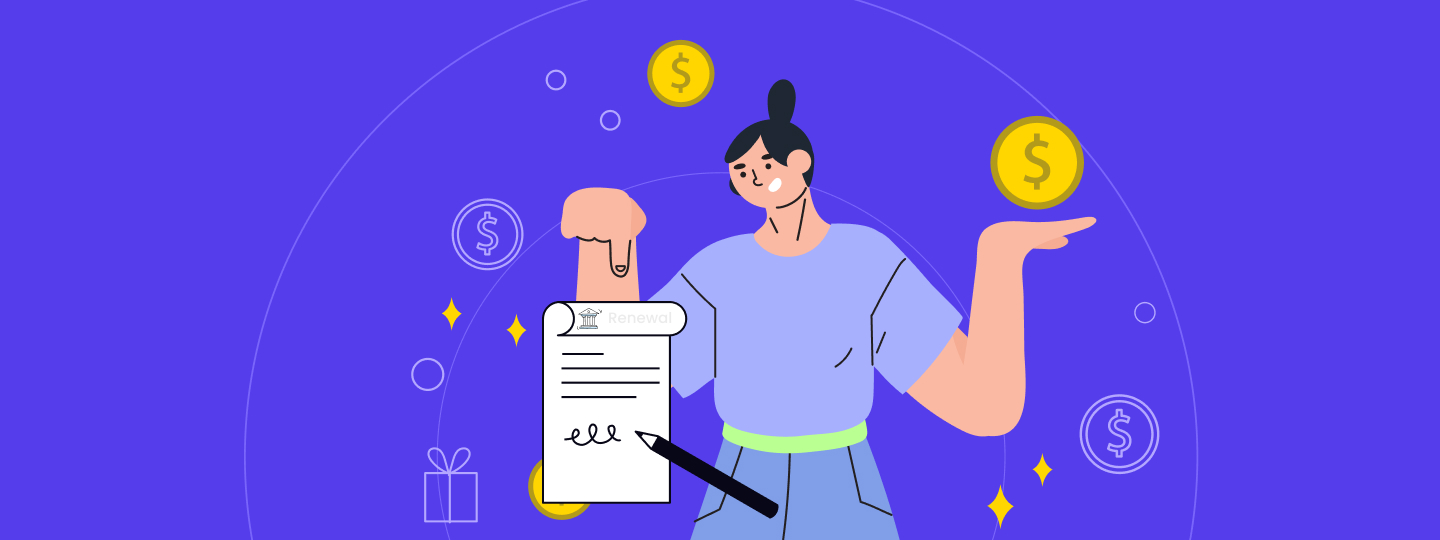Acquiring new users is 6 times more expensive than customer retention. That’s why you need customer loyalty & retention.
Businesses should retain existing customers because it is typically more cost-effective to retain an existing customer than to acquire a new one. Additionally, retaining customers can lead to increased revenue through repeat business, upselling, and positive word-of-mouth advertising.
Furthermore, satisfied customers are also more likely to provide valuable feedback that can help improve products or services. And lastly, retaining customers helps to build a loyal customer base which in turn helps to create a strong brand reputation.
While many businesses invest in paid marketing to get customers, few pick new customer retention strategies over top-of-the-funnel marketing, which is actually a very smart and safe move.
As businesses strive to retain existing consumers in an overly competitive market, customer loyalty programs are becoming increasingly important in today’s business landscape. Customer satisfaction is everything while there are 5B+ people to impress on the Internet.
Discover the Proven Strategies for Boosting Customer Loyalty and Skyrocketing Your Customer Lifetime Value (CLV) with this blog.
Impact of Loyalty Programs on Customer Retention
Loyalty programs can positively impact customer retention by rewarding and incentivizing customers to continue doing business with a company. These programs can take many forms, such as rewards for repeat purchases, exclusive discounts, or special perks for loyalty program members. When customers feel valued and rewarded for their loyalty, they are more likely to continue doing business with the company and less likely to seek out competitors.
Additionally, loyalty programs can provide valuable data on customer purchasing habits and preferences, which can help companies improve their products and services and better target marketing efforts. Overall, loyalty programs can help create a sense of community and belonging for customers and increase their sense of commitment to the brand.
Have a look at these stats-
- Once a brand has won over 59% of American consumers, they have earned their loyalty for a lifetime.
- A staggering $1.6 trillion is lost by companies due to customers switching to competitors.
- Customer service is “extremely important” in brand choice and loyalty, according to 56% of global customers.
- Brand loyalty is listed as one of the top aims of 50% of marketers’ content marketing strategies.
This couldn’t amplify the importance of an effective customer loyalty program more for your company.
Need help getting a fantastic loyalty program going for your brand? Take a demo with us today.
What are the main types of loyalty programs?
- 1. Points-based loyalty programs
Points-based programs provide customers with rewards for their purchases, typically in the form of points that can be exchanged for discounts or other rewards.
Using this method can reward loyalty and encourage repeat purchases.
Furthermore, point-based programs assist businesses in tracking customer purchases and analyzing spending habits, allowing them to better target their marketing efforts.
With every purchase, customers unlock the delicious rewards of Chipotle’s loyalty program, earn points and savor the taste of free food and merchandise.
- 2. Reward-based programs
Rewards-based programs offer customers rewards for their loyalty, such as discounts or free products.
A reward-based loyalty program divides the incentives into stages, with each level’s rewards increasing in value. These incentives can range from cashback to freebies.
Grub hub’s loyalty program offers rewards worth over $400 in free food to satisfy your appetite for savings!
- 3. Subscription-based loyalty programs
Almost 15% of online shoppers have signed up for one or more recurring product subscriptions.
Unlike rewards or points, subscription-based rewards require customers to pay an amount in advance.
For example: Amazon offers free shipping and ad-free music streaming along with an Amazon Prime Video subscription.
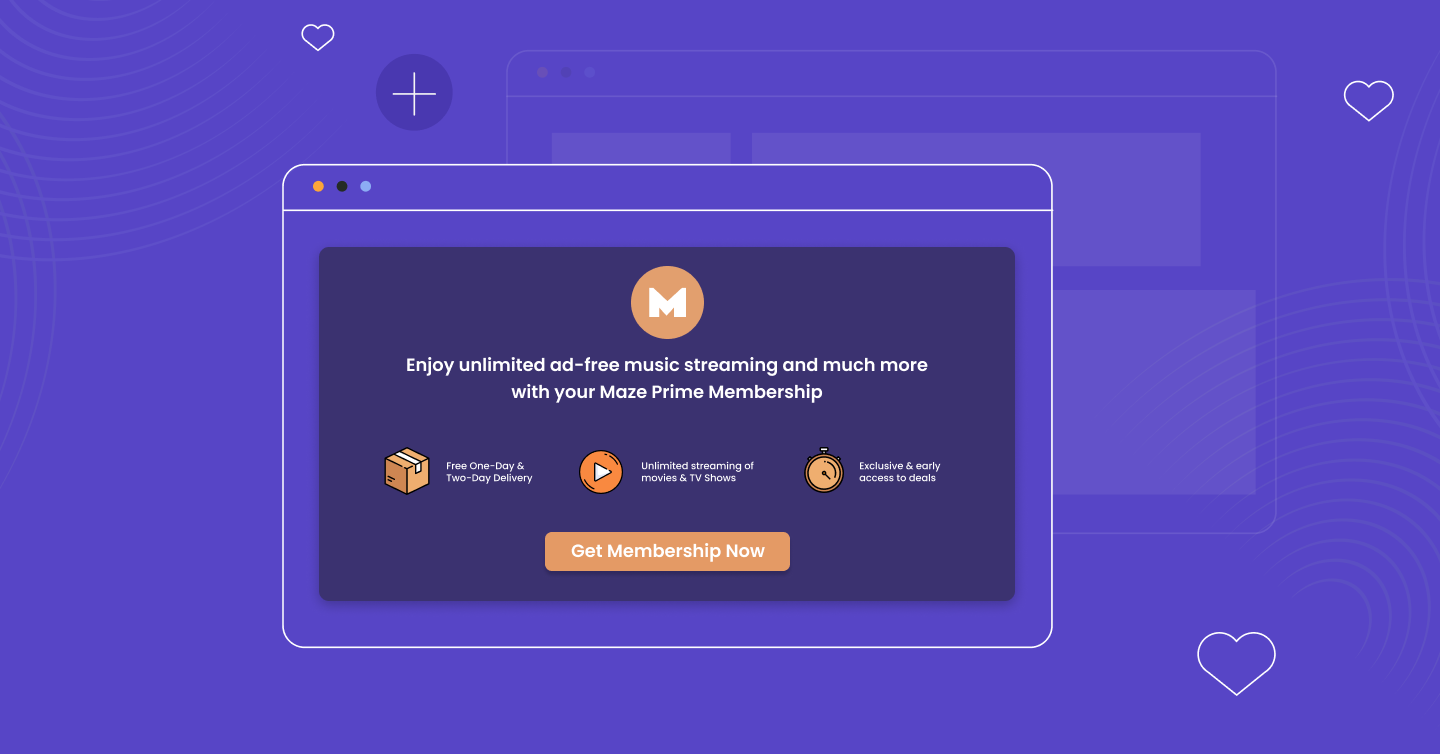
- 4. Value-Based Loyalty Programs
Companies can request customers if they would like to donate to a cause they support. This fosters a closer relationship between brands and their consumers.
Ben & Jerry’s Flavour Fanatics value-based program not only offers perks like discounts and free birthday cones, but also supports a greater cause.
Customers who sign up can enjoy 10% off every purchase while also supporting social justice initiatives through special flavors and donations to charities that align with the brand’s mission, promoting engagement and repeat purchases.
- 5.Hybrid Loyalty Programs
As the name implies, these are combinations of two or more customer loyalty programs, making offers even more lucrative.
A business may offer a mix of rewards and point-based programs and entice customers to make more frequent purchases.
The Starbucks rewards app offers a unique blend of a points-based system and tiered loyalty program, where customers earn ‘stars’ with every purchase.
Once 150 stars are collected, customers can redeem a free drink. As they reach 450 stars, they reach the “gold level” status and are eligible for perks such as a free birthday drink, additional espresso shots, and complimentary syrups and whipped cream.
The app also includes a fun, interactive element with challenges that offer customers the chance to earn free drinks by purchasing specific items within a certain timeframe.
This combination of earning stars, reaching gold-level status, and completing challenges create an engaging experience for customers, incentivizing them to make purchases. With Starbucks Rewards users accounting for half of Starbucks’ total sales, this hybrid loyalty program is a proven success.
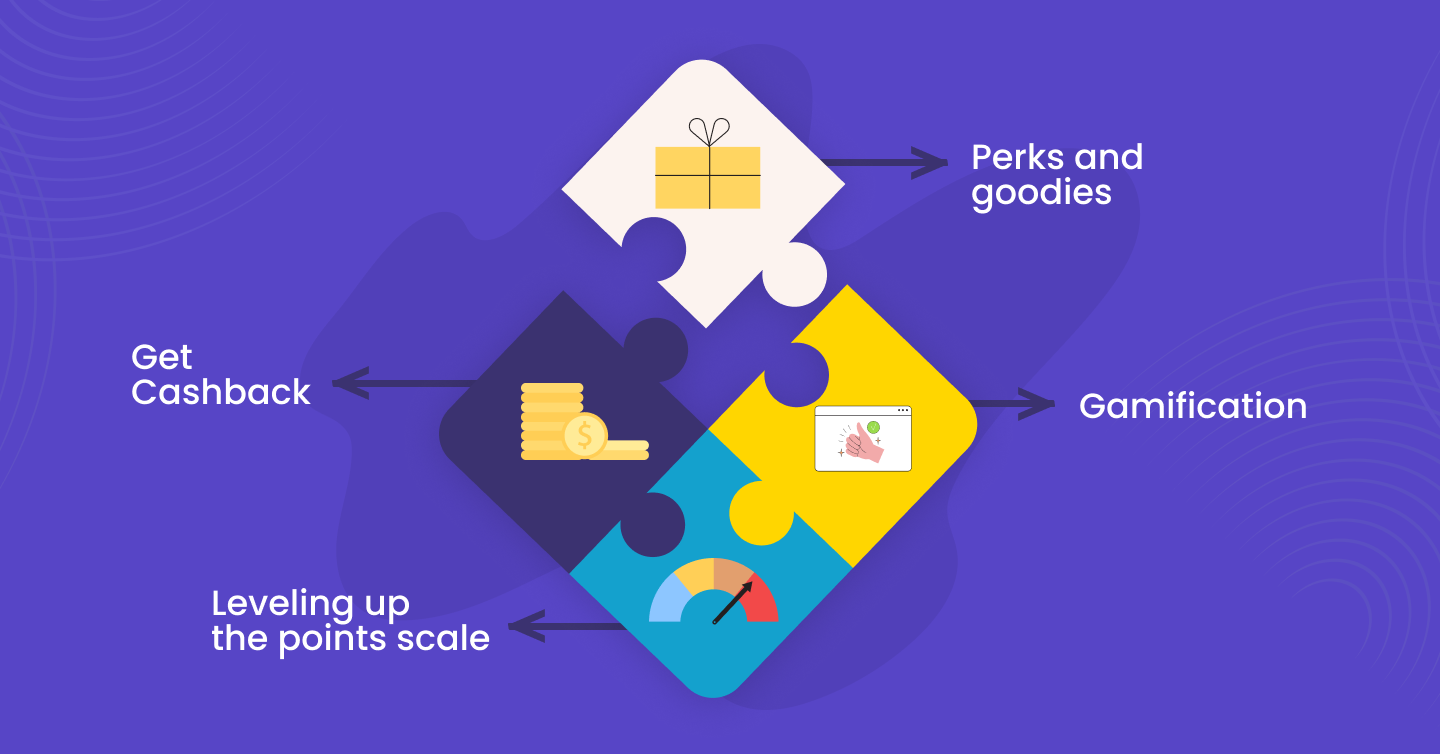
How to Improve Your Loyalty Programs?
We’ve examined how a customer loyalty program is useful and its types, so let’s check out the strategies you can implement to maximize its benefits.
Tips and best practices
1. Leverage data –
By managing a customer loyalty program, you may gain incredibly insightful knowledge about customers’ preferences and purchasing behavior.
For example, Amazon Prime uses customer data to personalize the shopping experience by providing tailored recommendations and discounts.
2. Explain the advantages –
Customers could be wary of loyalty programs because they might see them as a ruse to get them to spend more money. As a result, it’s critical to be completely transparent and to describe the advantages consumers will receive.
For example, the Ikea Family rewards program offers members exclusive discounts and early access to sales events.
3. Think beyond revenues –
Show your appreciation for your consumers’ gestures, such as subscribing to your newsletter or referring to your products.
Starbucks, for example, allows customers to redeem rewards for free drinks while also providing exclusive access to special events and merchandise discounts.
4. Diversify the incentives –
Give them access to various benefits, including those that aren’t monetary.
The Sephora Beauty Insider rewards program offers a range of rewards, including discounts, free samples, and exclusive access to events.
5.Have multiple distribution funnels – If you’re rewarding users for joining your email list, why also reward them for signing up on your website?
MyPanera rewards program allows customers to earn rewards through online orders, in-store purchases, and mobile app orders.
Importance of personalization in loyalty programs
By reviewing the customer’s previous purchases and preferences, businesses can reward customers with offers, discounts, and rewards tailored to their needs.
This helps to create a more meaningful experience.
Personalization also helps businesses to identify their best customers, allowing them to provide them with additional benefits. It also helps increase customer engagement, loyalty, and satisfaction.
According to McKinsey, personalization plays a crucial role in building and maintaining customer loyalty. Their research shows that nearly three-quarters of consumers expect personalization in their interactions with brands, and a high percentage of those customers become frustrated when it is not provided.
How can technology enhance loyalty programs?
With technology, loyalty programs can be integrated into customers’ lives more seamlessly.
For example, mobile apps allow customers to track and manage loyalty points, rewards, and special offers. Customers can also use mobile apps to access exclusive loyalty programs.
In addition, businesses can use technology to automate their loyalty programs and enable customers to receive rewards more quickly and conveniently.
Successful loyalty programs

Besides those mentioned above, these brands have also succeeded in winning customers through loyalty programs-
- The Body Shop: The business pushed for an end to animal testing. Customers who supported the cause purchased its products, and the brand gained credibility.
- Dunkin’ DD Perks: Dunkin’s loyalty program rewards customers for every purchase with points that can be redeemed for free drinks and food. Members also get a free drink on their birthday and exclusive deals.
- Target Circle: Target’s loyalty program offers customers personalized deals and discounts, as well as the ability to earn rewards for purchases and charitable donations.
Conclusion
Points, rewards, value-based, and subscription-based programs are all popular types of loyalty programs, each offering unique advantages. Every program offers benefits to businesses, so they can customise it to meet their individual needs.
Competition in every industry is fierce. Exciting offers may entice customers to switch between brands frequently. Customer loyalty programs are thus vital to building a solid customer base.
Go one step ahead of the competition with WebEngage
Over 85% percent of WebEngage customers experienced a growth in their customer retention rate, including well-known eCommerce entities such as MyGlamm and Myntra, as well as prominent companies such as Adani and Groww.
A look at how WebEngage assisted FirstCry in achieving a 400% percent increase in repeat orders: The Customer Success Manager at WebEngage recommended that the Marketing team at FirstCry comprehend the behavior of their customers.
Instead of manually sorting the segments, FirstCry used the WebEngage platform to categorize the parents automatically based on real-time data such as buying history, activities on the app or website, and other information.
To encourage customers to buy again, FirstCry chose to comprehend the behavior of shoppers and the way they consume products and, afterward, to nudge them with personalized messages at the ideal time through the right channels.
The results were very positive – FirstCry was able to automate its user engagement operations and increase its Average Order Value as well as the frequency of repeat purchases.
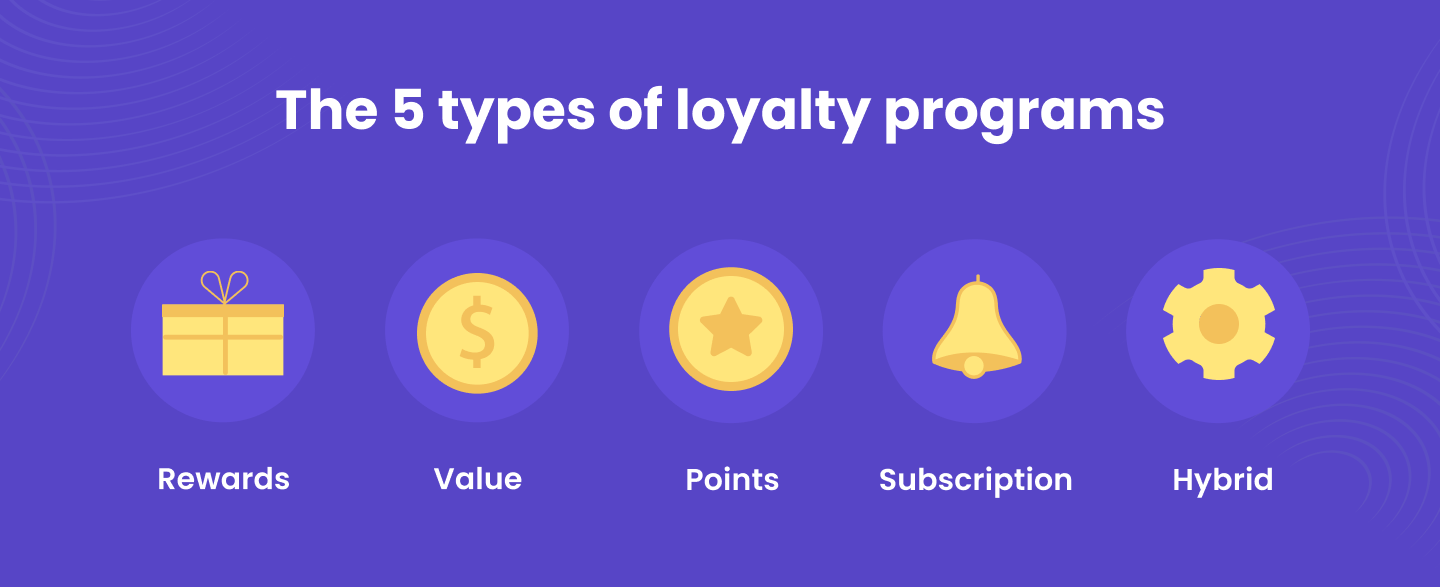
Take the first step in building a strong customer base and implement a customer loyalty program today!
Contact us for more information on how we can help create a customized program for your business.
Take a demo today.



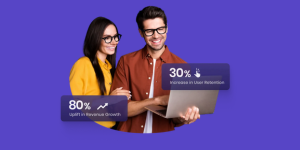
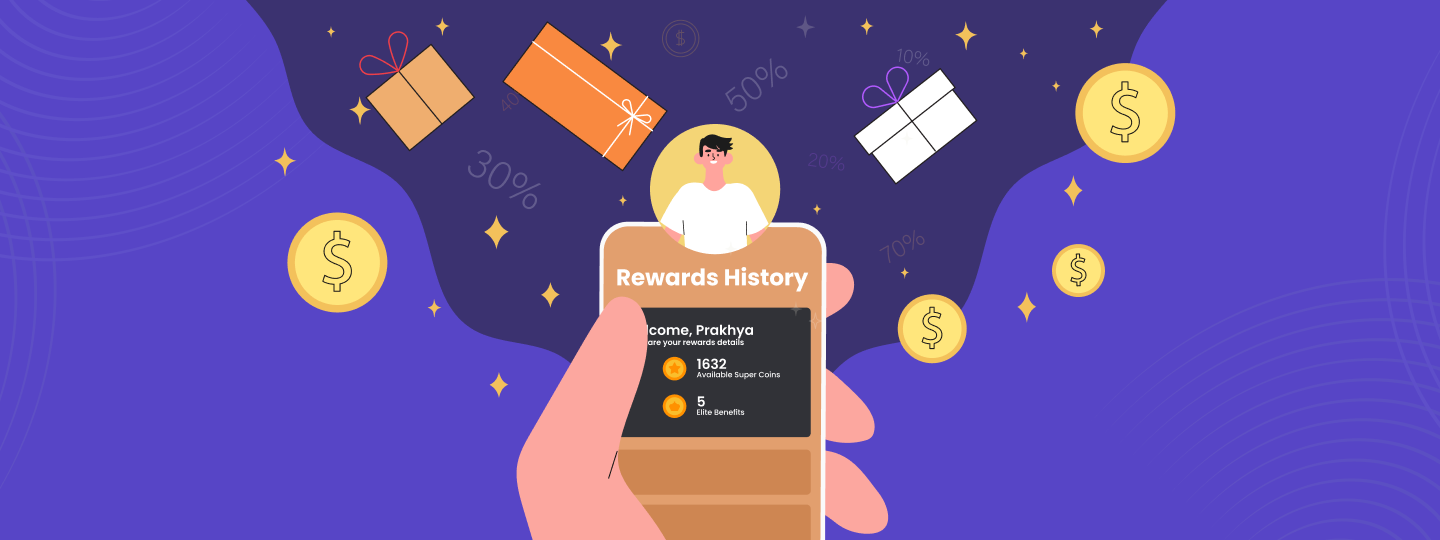

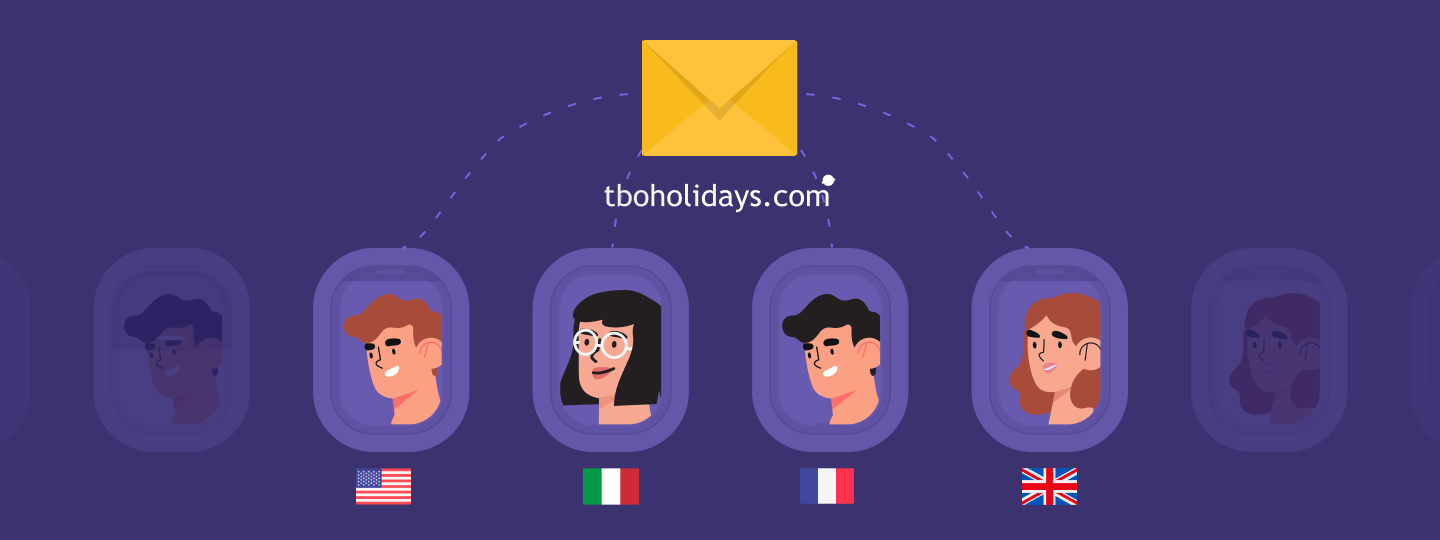
 Dev Iyer
Dev Iyer
 Prakhya Nair
Prakhya Nair